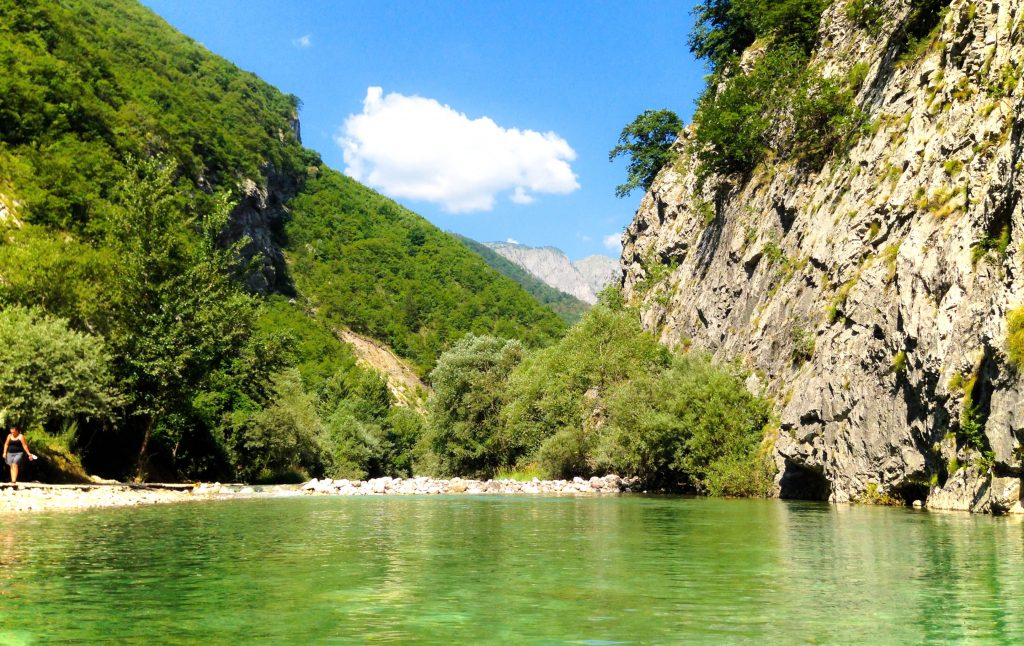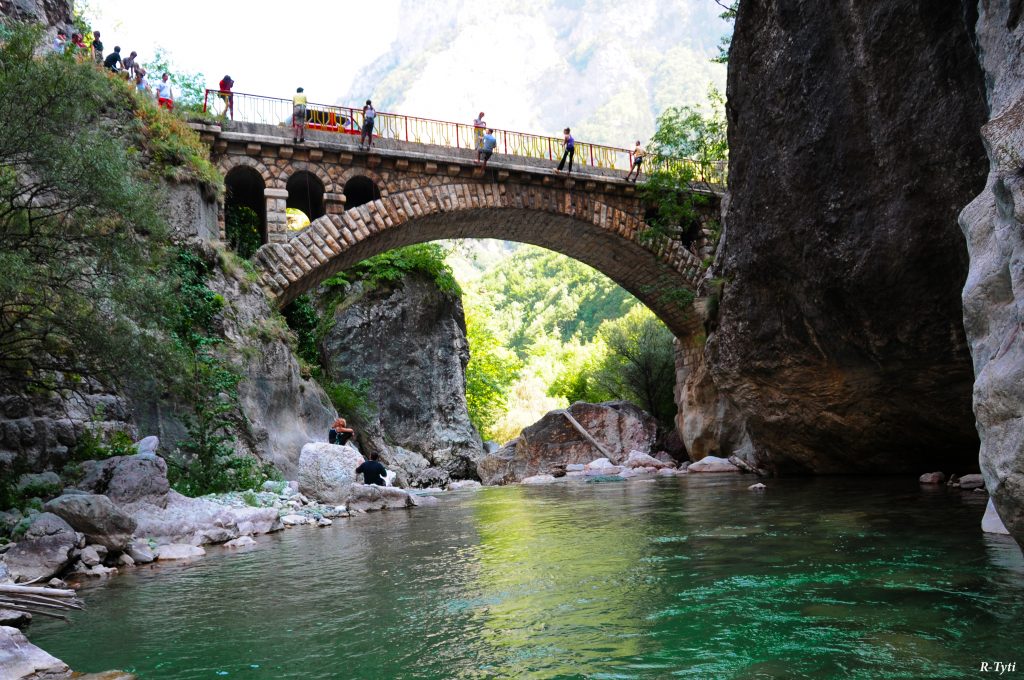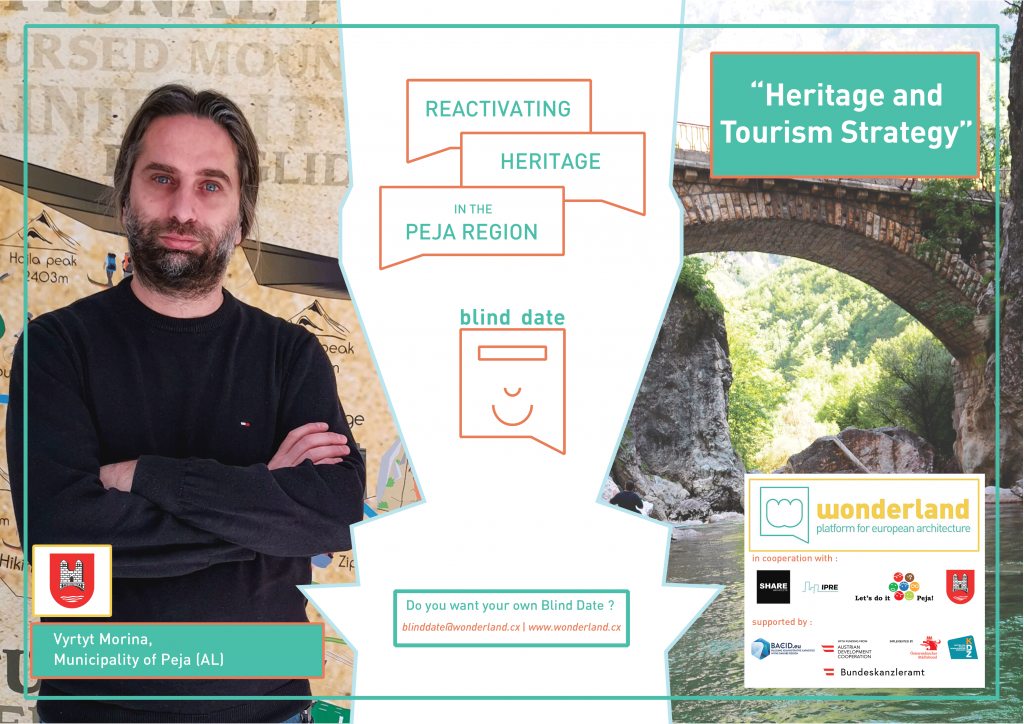About Peja

Western Kosovo or Peja region is home to the Bjeshkët e Nemuna(Accursed Mountains National Park) and has a very rich and diverse cultural and natural heritage. The Peja region covers the area of 2,218 km2, comprising six municipalities: Peja and Gjakova as major cities and Deçan, Junik, Klina, and Istog as smaller cities and 306 villages.
The history, culture, tradition, the natural wealth of the city of Peja, as well as its geographic positioning makes it a place to be visited by tourists from around the world. What’s more, the luscious, preserved environment and fertile land are some of the key elements making the city an attractive destination year-round. The city boasts a rich history and is identified in Kosovo as a tourist destination. Various documents show the existence of the City of Peja as an organized habitat since the Illyrians and it is mentioned as a caravan merchant crossroads between Venice and Ragusa (ancient Dubrovnik).
Actions of the project
1. Data Acquisition and Mapping
Primary and secondary data collection, including: observations, literature studies on the urban planning phenomenon, conducting formal and informal interviews with government officials and city residents are considered essential to enrich the information.
2. Five online webinars
Knowledge exchange between “SHAREarchitects”, wonderland, TechnicalUniversity Vienna, the Economic Development Department and TourismOffice of Peja Municipality and the NGO “Let’s do it Peja”. We will publish the webinars online and made available for further actors.
3. & 4. Heritage and tourism scenarios
Analysing bottlenecks for the community and creation of different scenarios for roadmap for different actors.

What is the aim of the project?
The aim for the Peja region in this project is to begin the process of community development. The desire to preserve cultural heritage is complemented with the will to empower the community in taking over and leading the whole process. This project, thus, is focused on developing a road map for the community-led activation of cultural heritage in the Peja region. Tourism is considered as a key element of this approach, as long as it is sustainable and benefits the community. The activities, therefore, need to create a win-win situation for the community and the industry. This approach and the roadmap targets all kinds of cultural heritage – including intangible heritage and also natural heritage. Crucial for the success of the roadmap is the identification of communities, objectives and current bottlenecks
Bahanur Nasya explains the main pillars of community-led development and the potentials and chances which can be developed for the local citizens, while keepin heritage alive and in use for the community.
Selected experts for this project
Univ.Prof. Prof. h.c. Dipl.-Ing. Dietmar Wiegand – IPRE
Dietmar Wiegand is a Professor for Real Estate Development and Management at The Vienna University of Technology; Managing Director of the Institute for Property Research (IPRE); and with his experiences in curriculum development a key person in Erasmus plus project HERITAGE-PRO.
Dr. Silvia Forlati – SHARE architects
Silvia Forlati is an expert on re-activation processes. She established the practice SHARE architects in Vienna and is founding member of wonderland.
DI Bahanur Nasya – wonderland
Bahanur is an architect, researcher and film producer. She is leading wonderland and works with Eutropian.

Urim Xharavina – Let’s do it Peja!
Urim Xharavina is an economist with extensive experience in project development and heritage protection. He is head of the association “Let’s do it Peja!” and participated as an expert in the development of policy documents.
Lendita Muhaxheri – economist at Peja municipality
Lendita Muhaxheri is an adult trainer and coach and joined recently as economist the municipality team of Peja.
Vyrtyt Morina – Chief of tourism sector in Peja
Vyrtyt Morina is an economist specialised on tourism and is the head of the tourism department at the municipality. He is involved and very active in the projects that have impact on regional development and also in the cross-border level with Albania and Montenegro.

